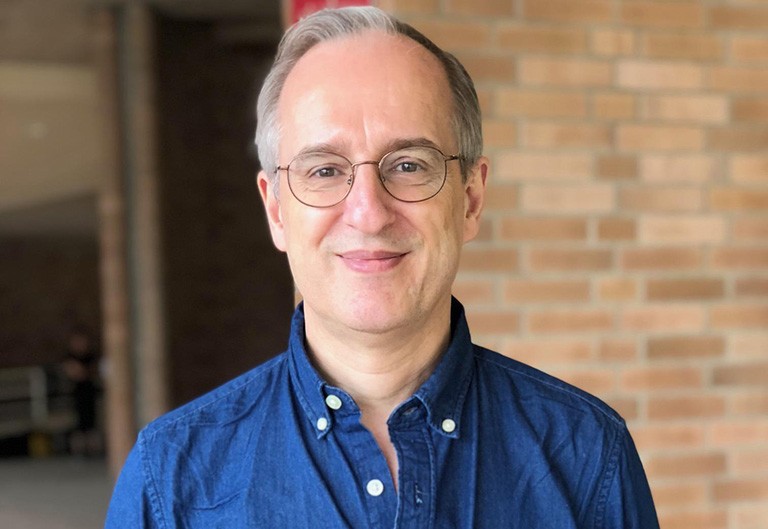Concordia professor volunteers with Academics Without Borders in Manizales, Colombia
 Ricardo Dal Farra: “Arts and sciences are both about trying to have a positive impact on the world.”
Ricardo Dal Farra: “Arts and sciences are both about trying to have a positive impact on the world.”
Ricardo Dal Farra of Concordia’s Department of Music is one of a number of researchers whose transdisciplinary work and teaching combines art, science and technology.
“In many ways arts, sciences and technology grew over the past decades into very distinct and practically separate disciplines,” Dal Farra says, adding that there has been a lot of recent and encouraging work on interdisciplinarity, which supports collaborations between disciplines. But the disciplines themselves often remain fairly disconnected.
“I’m interested in transdisciplinarity. I like the hyphenated term ‘art-science,’ because it implies a real integration of multiple perspectives,” he adds.
“In many ways, of course, arts and sciences have their own distinct methodologies and methods of inquiry. The sciences are perhaps more focused on certain kinds of analytic and empirical understanding, whereas the arts are more focused on communication and expression.”
But Dal Farra notes that more and more, there are problems, projects and ways of thinking that don’t fit so neatly into any single discipline. At the margins, the differences between disciplines can start to blur.
“They’re both different ways of communicating and thinking through complexities. They’re both about trying to have a positive impact on the world.”
C-Transmedia Research Center
An Academics Without Borders (AWB) project was recently approved and funded in which Dal Farra will act as a volunteer expert consultant at the C-Transmedia Research Centre of the Faculty of Arts and Humanities at the University of Caldas in Manizales, Colombia. AWB is a Canadian nonprofit that works with universities in the most disadvantaged countries building their capacity to educate the professionals and leaders essential to building the strong societies they desire.
The goal of the art-science research centre at Caldas is to address social and economic inequalities affecting people in the region.
Part of the project is also to develop a master’s program in art-science at Caldas. The researchers involved expect that new educational opportunities will have a direct social impact on the communities of students in the program. Graduates will be equipped to address local problems through creative means, taking advantage of their studies in art-science.
A course that Dal Farra created, Transdisciplinary Creation and Performance, has run at Concordia for a number of years. He will bring this teaching expertise and his research to Caldas to help start their program.
International, interuniversity collaboration
Dal Farra points out that the C-Transmedia Research Centre isn’t the beginning of the collaboration, however. It’s just the most recent project in a long series of work together. He has been involved with the University of Caldas extensively over the past 10 years.
“It’s great to have AWB support this important project. It’s nice to have our ongoing work recognized,” he says.
“The potential of Concordia is amazing. There are many people working between the arts and sciences. And there are many artists, scientists and technology experts at Caldas as well. We’ve all benefited from our ongoing exchanges.”
At the moment Dal Farra is helping get the research centre going and the art-science program started. He is doing so remotely until international travel is feasible again.
“I’ve visited Caldas with my Concordia colleagues over the course of many years. I’ve also been there with graduate research assistants and with undergraduates, giving them an International Field School study opportunity,” he adds.
“It’s been a great experience for everyone. It always helped open Concordia students to new ideas. It gave them contacts in new countries, exposure to new cultures. It’s all part of the same, multi-perspective approach to research and education.”
Find out more about Academics Without Borders and its current call for project proposals.
Learn more about Concordia International.


